Music & Concerts
Billy Gilman plans weekend Bethesda show
Singer overcomes voice changes, industry norms to rebirth career
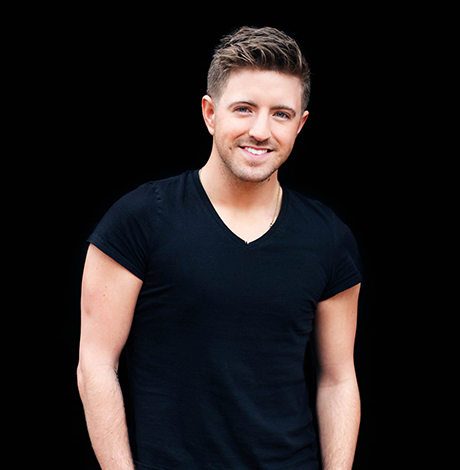
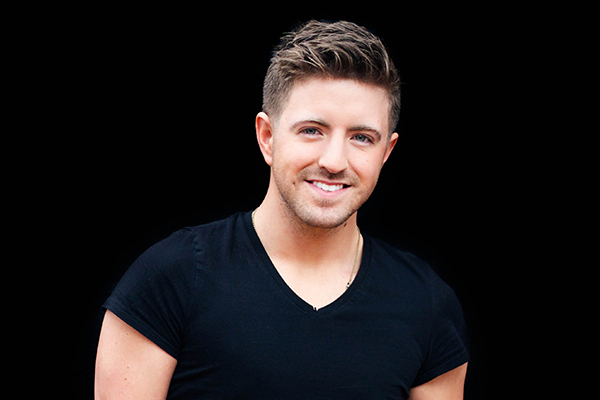
Billy Gilman has big plans to release new music he’s psyched about. (Photo courtesy Bethesda Blues and Jazz)
Billy Gilman
Sunday, Oct. 29
7:30 p.m.
Bethesda Blues and Jazz Supper Club
7119 Wisconsin Ave., Bethesda, Md.
$45-75
Some people fight for years to break into the music industry but Billy Gilman became a star at the early age of 11. His debut single “One Voice” cracked the Billboard Hot 100 and led to a Grammy nomination and plenty of touring.
Gilman’s career started with a bang but began to fizzle when he suddenly seemed to disappear from the music scene. He reemerged with a coming-out video on YouTube that went viral in 2014.
Then in 2016 Gilman auditioned for “The Voice” by singing “When We Were Young” by Adele. He joined Team Adam Levine and swept the competition to become season 11 runner-up. Now Gilman is giving his music career a second go around but says this time it’s going to be more authentically him. Calling from his office desk in his home state of Rhode Island, the now-29-year-old singer spoke with the Washington Blade about his 10-year hiatus, coming out as a country star and if his friendship with Levine was just for the cameras.
WASHINGTON BLADE: What was it like achieving success so early? Did you realize what a big deal it was?
BILLY GILMAN: No. I knew that it was great. But all I was really concerned about was getting on a stage and just having fun. That was my main love. It was almost like a game. It didn’t feel like a job. It didn’t feel like a pressure like, “Oh, we’ve got to get to number one. We’ve got to sell this many units this week.” The pressure is now. Now that I know what’s going on.
BLADE: What were you doing in the 10-year break between your self-titled album in 2006 and your “The Voice” audition in 2016?
GILMAN: My voice really, I don’t know if it was from all the stress it was under traveling for so many years as a kid or whatever, but when my voice changed it was a very bad time. It took a long time for it to come back where I knew I could hold a show on my own and not have to worry, “Oh, is it just going to go and leave me?” It would stay for a song and then it would just vanish, no sound coming out. We would go to the doctor but there really wasn’t any damage, it was just the vocal chords figuring out what they wanted to do. It took two-and-a-half years for me to fully get back out on a stage and be able to hold a show. But I lived in Nashville through all that time co-writing. I raised $2.5 million for the Muscular Dystrophy Association.
So, I was very busy I just really wasn’t doing my thing. I had to find other ways to work and be out in the public eye and not letting that flame die, hoping that my voice would come back. And it did and that began the process of relearning it. You can’t hit those extravagant high notes that you used to hit. You have newer, lower notes.
When you’re told what to act like, what to sound like, how to dress that’s just your mentality. It wasn’t until I started to song write that I realized who I was, and what I loved and what I didn’t like. I knew that Nashville just wasn’t going to buy into it. I was trying to fit the formula when I knew I wasn’t going to fit the formula anymore. But I stayed and cowrote songs for publishing companies, did recordings and all that for five or six years. I knew I wanted to change gears and let my voice do what it was put on earth to do knowing that it can again, which is big ballads. I would do my little country stuff on stage at 12 years old and then I would literally sign autographs, do my duties, get on the bus and just belt out Celine Dion and Michael Bolton. That was just where my voice really fit. But the gimmick was working at 12 years old, a kid singing country music.
So when “The Voice” called, and they had been calling for a few years and I had said, “No, I want to do it on my own.” But usually, if an opportunity comes up and goes away and you ignore it, well that’s your own mistake. But this one kept coming. They just kept persisting. So I said, “You know what if it keeps coming up so strongly in my reality, it’s for a reason.” So I finally gave in and auditioned and the journey really revved up.
BLADE: Did you feel like your prior experience gave you an advantage on “The Voice”?
GILMAN: No. The only thing that helped me was I knew how to hold notes and get around things if I was sick. That helped. But you’re standing toe to toe not knowing what the hell is going on just as much as the person that came from selling cars or behind a desk. There really was no advantage and they didn’t treat me any different. To the onlooker, it looks like it maybe played a role but it really doesn’t. They’re all about quality in all forms. Everyone is the same. That was really great because I was a little timid to talk to anyone in the first couple of weeks in the process. I didn’t know if the other contestants would be upset if they found out or if anyone knew.
So, I didn’t want to cause waves because you never know how people are gonna react. But we really started to get friendly and became friends and family that hopefully will forever be friends and family. The winner of my season had a prior record deal and we didn’t know that. Everyone has a history more often than not. There’s more entertainers that were co-writers on big hits, background singers for someone really famous. Ninety percent of them knew what they were doing or had a name of their own in whatever way prior to the show.
BLADE: Your coach was Adam Levine. Do you still keep in touch with him?
GILMAN: I do. We talk. The ones I talk to are him and Miley (Cyrus) mostly. He’s great. He was very black and white. I like truth and I don’t like to be doted or coddled. It was neat to see someone really get invested in the situation and not just when the cameras are on. He’s awesome.
BLADE: Country music isn’t known for out artists in the same way a genre like pop is. Were you afraid of losing fans coming out as a country singer?
GILMAN: If I’m going to lose fans like that then I don’t care. I’ll go sing on a cruise ship. I will always be a singer. If I was losing fans because I was sending a message that really was not a good one or I went into rap or something that has more of a negative tone I could see that as a hurt. But me being happy and spreading peace and helping some other person possibly, if I lose fans over that then it was meant to happen. At first I told my family and then I slowly started to tell my team. But then I figured it’s no one else’s business. No one else deserves to know. I’m just a singer. You put my record on and you watch my video on YouTube and then you go about your life. You don’t need to know any more about me. Country music especially isn’t the case like that. It’s very family oriented and they want to know their artists. So they advised me to tell them because it was a struggle for me to be successful again.
And when I finally came out to my team they said, “You have no idea the stigma that’s around your name. It’s a horrible thing but that’s the reality of this town.” And I went, “That’s really disgusting. I have a hit song right here. And you’re not going to play it just because of my personal lifestyle?” That’s just the way it works. It’s actually mind boggling. But it is what it is. A high-profile magazine wanted a cover story and I said no because it looks like I’m trying to sell it or find success in something so intense. My team wasn’t too thrilled. But it’s not a publicity stunt. It’s just telling people the situation.
So I opted to do it on YouTube. Because if it were to go viral and do amazing that’s on its own, I didn’t push it. The amount of press that I got from it was great. But the amount of letters, emails that I got from kids in middle America saying, “I was kicked out my home, what do I do? But now I don’t feel alone and I feel like I have a voice to help me through this.” The positive outweighed the negative by almost a 100 percent. People are gonna say what they’re gonna say but they’re gonna do that anyway.
But musically, I was like holy shit where am I going? But I am a singer. I don’t remember a time when I wasn’t. So I knew in my gut that there was no other way for me. I had to trust that it would be OK. Sometimes that’s all you have to go by.
BLADE: Being both gay and a country singer, do you feel an obligation to speak out on events like the Pulse nightclub shooting and the Las Vegas shooting?
GILMAN: The way I feel is every voice is important at certain times. I think that there’s a place and time for my ranting. I could be like one of these artists that get on Twitter every five minutes. But what is that really helping? If you live your truth and you live to help the cause in your everyday life that stands alone as well. I do plenty of events and speak on behalf of GLAAD and the LGBTQ community. It’s just about living your life and not backing down. That’s a win, that’s a stance. Not cowering and being proud of who you are no matter what you are.
BLADE: What projects are you working on? Any new music?
GILMAN: I’m working on some really fun stuff. When I stepped out on “The Voice” stage I told my team I really have to do me this time. That’s such a new kid term, “Do you.” When you say it, it sounds really gross but it’s true. I really had to be who I knew I was and who I created alone. I would go, “Damn it, I wish people would hear this.” But I just wasn’t ready yet to show that part of me. So when “The Voice” came I said, “I gotta do me I think I’m gonna do an Adele song as my audition song” and everyone said, “What?” And I said, “Yeah, that’s where I see myself.” I said this is the biggest platform to see if it will work because if people don’t like it they won’t vote, they won’t download.
Thankfully, America bought into it. It enabled a lot of confidence in that new lane. We just wrapped mixing some songs that will be released. We’re meeting with record labels so I don’t know how long it will take. I could always release it myself if that doesn’t work. But right now they’re fresh off the studio floor. I don’t know when it will come out but it is done. Both regular music and Christmas music. It’s great to have this music that I’ve never had before. It can contend with everyone else and I’ve never had that before.
BLADE: What can people expect from your show?
GILMAN: This one is a little different. It’s a very up close and personal night of songs. My old stuff that people remember, some new stuff. I learned from another very successful artist, “You can do a million original songs but just expect people looking for the popcorn, the beer or the bathroom.” If they don’t know the song you gotta throw in some stuff that they know. So I threw in this little segment, because it’s so popular on TV and YouTube, called Carpool Karaoke. It’s really been working and it’s fun. It’s a variety show of songs that I really love but on the intimate side which is always a fun thing every once in awhile.
Music & Concerts
Washington chorale kicks off Christmas with vibrant program
‘Thine Own Sweet Light’ concerts planned
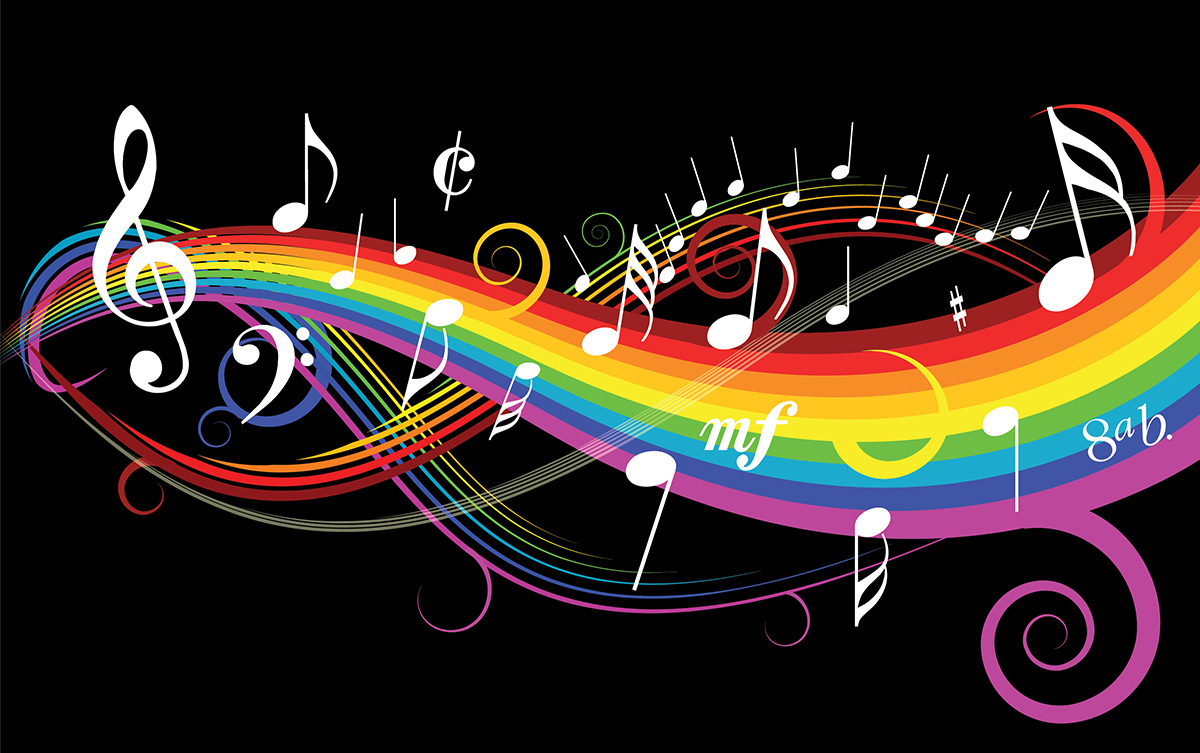
The full Washington Master Chorale will return for its annual holiday concert tradition with “Thine Own Sweet Light” on Friday, Dec. 19 and Sunday, Dec. 21 at St. Ann’s Catholic Church (D.C.) and Church of the Epiphany (D.C.).
The concert will feature the rich sounds of the 50-voice, a cappella chorus performing lush, seasonal choral music inspired by the theme of light. Highlights include Edvard Grieg’s “Ave Maris Stella,” Eric Whitacre’s “Lux Aurumque,” and Christopher Hoh’s “Holy, Holy, Holy is the Lord God of Hosts.” The program will also present a new work by Barcelona composer Josep Ollé i Sabaté, along with charming holiday folk songs and seasonal favorites.
For more details, visit the Washington Master Chorale website.
Music & Concerts
Queer mega stars (and allies) ready to take D.C. stages this fall
Watch LGBTQ icons light up stages across the DMV as they sing, dance, and drag their way through spectacular shows.
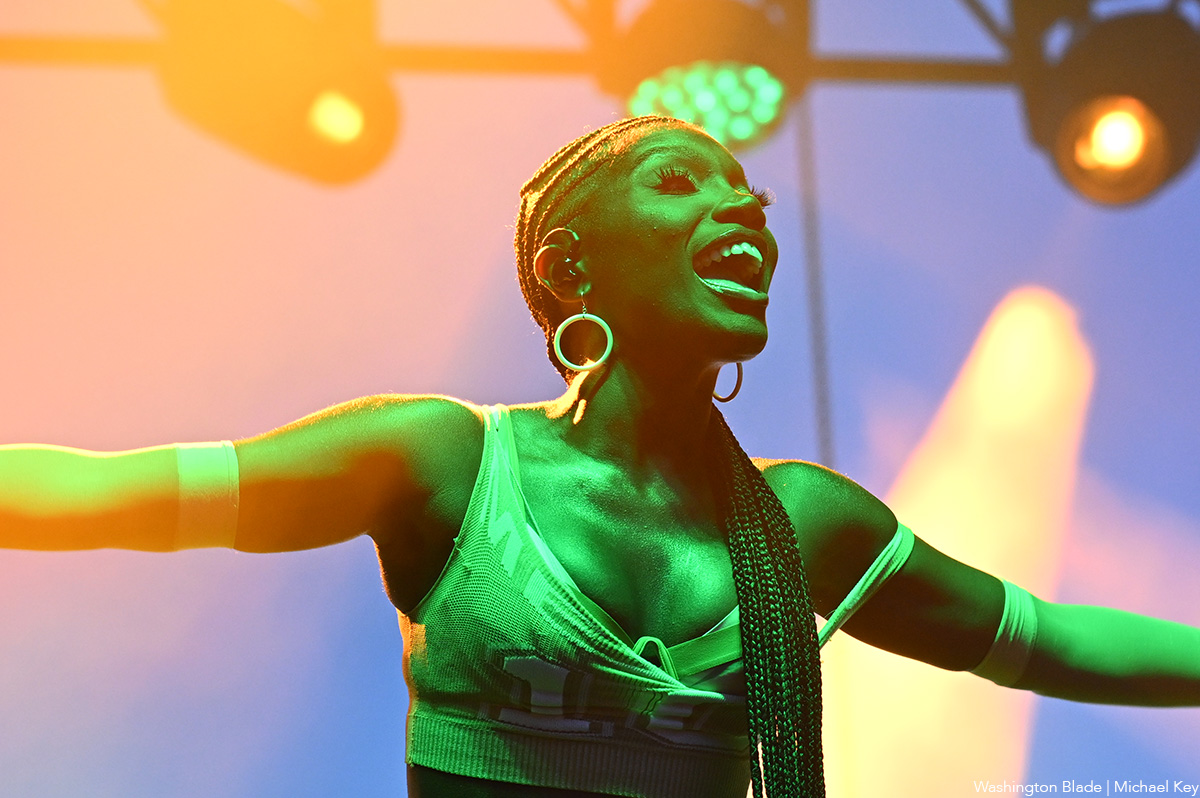
One of the best ways to welcome fall is by catching LGBTQ performers (and their allies) lighting up some of the D.C. area’s biggest stages. From country and pop to drag and rock, the season is packed with shows you won’t want to miss.
Maren Morris – The country, rock, and pop diva—known for hits like “The Bones” and for standing up against Nashville’s anti-LGBTQ voices—takes the stage at Wolf Trap (1551 Trap Rd, Vienna, Va.) on Friday, Sept. 12 at 8 p.m. Tickets start at $64.
RuPaul – The mother of modern drag and host of “RuPaul’s Drag Race” will spin a DJ set at Echostage (2135 Queens Chapel Rd NE) in Northeast D.C. on Sept. 20. Before RuPaul swaps wigs for headphones, Trade and Number 9 owner Ed Bailey will warm up the decks. For tickets and details visit echostage.com.
Conan Gray – The queer pop prince, celebrated for his Gen Z anthems like “Heather” and “Maniac,” brings his Wishbone Pajama Show to EagleBank Arena in Fairfax, VA, (4500 Patriot Cir) on Sept. 20 at 8 p.m. Tickets start at $113. For more info visit shop.conangray.com/pages/tour.
All Things Go Music Festival – With a lineup that includes Noah Kahan, Lucy Dacus, Kesha, Clairo, Doechii, and more, the beloved LGBTQ-friendly festival takes over Merriweather Post Pavilion (10475 Little Patuxent Pkwy, Columbia, Md.) Sept. 26–28. For tickets and details visit allthingsgofestival.com.
BERTHA: Grateful Drag – This unique tribute brings drag artistry and the sounds of the Grateful Dead to The Atlantis (2047 9th St NW) on Sept. 27. Tickets start at $47 at theatlantis.com.
Peach PRC – Rising Australian pop star and out lesbian, whose confessional tracks like “Perfect for You” and “Forever Drunk” have made her a queer TikTok darling, performs at The Atlantis on Sept. 29 at 6:30 p.m. The show is general admission only. Additional details are on theatlantis.com.
Addison Rae – The TikTok star-turned-pop princess, who’s crossed over into music with glossy hits like “Diet Pepsi” brings her sold out show to The Anthem (901 Wharf St., S.W.) on Sept. 30. Tickets are sold out, but resale options start around $80. For more info visit theanthemdc.com.
The Rocky Horror Picture Show 50th Anniversary – Celebrate the cult classic that’s been a queer midnight-movie staple for decades, with Barry Bostwick (a.k.a. Brad Majors) at the Warner Theatre (513 13th St., N.W.) on Oct. 2 at 8 p.m. Tickets start at $41 via Ticketmaster.
Chaka Khan, Patti LaBelle, Gladys Knight & Stephanie Mills – Four legends, one stage. Between Khan’s funk, LaBelle’s soul, Knight’s R&B, and Mills’ powerhouse vocals, this concert at Capital One Arena (601 F St NW) on Oct. 3 at 8 p.m. promises pure diva magic. Tickets start at $103. For more details visit capitalonearena.com.
Lorde – Joined by The Japanese House and Chanel Beads, the Grammy-winning New Zealand singer-songwriter behind “Royals” and “Solar Power” returns to The Anthem on Oct. 4 at 7 p.m. Lorde has long been embraced by queer fans for her dreamy pop and subversive lyrics. For more info visit theanthemdc.com.
Andy Bell (of Erasure) – The British queer rock icon, best known for synth-pop classics like “A Little Respect” and “Chains of Love,” brings his Ten Crowns Tour to the Lincoln Theatre (1215 U St., N.W.) on Friday, Oct. 17 at 8 p.m. Tickets are $90.45.
Doechii – The self-described queer “Swamp Princess”—and WorldPride 2025 headliner—continues her breakout year with the Live from the Swamp Tour at The Anthem on Oct. 21 at 8 p.m. Known for blending rap, R&B, and avant-garde performance art, Doechii is one to watch. Tickets start at $153.
Neon Trees – The out-and-proud Utah rockers behind “Everybody Talks” and “Animal” perform at the Lincoln Theatre on Friday, Oct. 24 at 8 p.m. Lead singer Tyler Glenn, who came out publicly in 2014, has become a strong queer voice in alternative rock. For tickets and info visit impconcerts.com.
Sasha Colby – The “RuPaul’s Drag Race” Season 15 winner strips down on the Stripped II Tour at the Warner Theatre on Nov. 2 at 8 p.m. Tickets available now on Ticketmaster.
Lola Young – The bisexual indie-pop sensation, whose raw songwriting has earned her millions of TikTok fans and multiple chart soaring hits visits The Anthem on Nov. 9 at 8 p.m. Tickets are still available.
Opera Lafayette
Featuring Mary Elizabeth Williams as Dido
+ Elijah McCormack, Chelsea Helm
Oct. 16, 7:30 p.m.
Sixth & I
PostClassical Ensemble
The Pale Blue Do: A Musical Voyage Inspired By Nature
Featuring National Geographic’s Enric Sala, Guest Curator
Wednesday, November 19, 7:30 p.m.
Terrace Theater
Washington Concert Opera
Starring Kate Lindsey, Theo Hoffman, John Moore, and Fran Daniel Laucerica
Nov. 23, 6 p.m.
Lisner Auditorium
Washington Master Chorale
An intimate a capella concert taking place in an architectural jewel, featuring cherished choral gems from Anglican and Catholic tradition and early American hymns. The concert will also present the world premiere of Christopher Hoh’s Holy, Holy, Holy is the Lord God of Hosts, and hymn singing featuring Robert Church, organist and choirmaster at St David’s.
Oct. 18, 7:30 p.m.
October 19, 5 p.m.
St. David’s Episcopal Church
Music & Concerts
Cyndi Lauper ready to have fun in Virginia
Superstar to bring final leg of farewell tour to Jiffy Lube Live
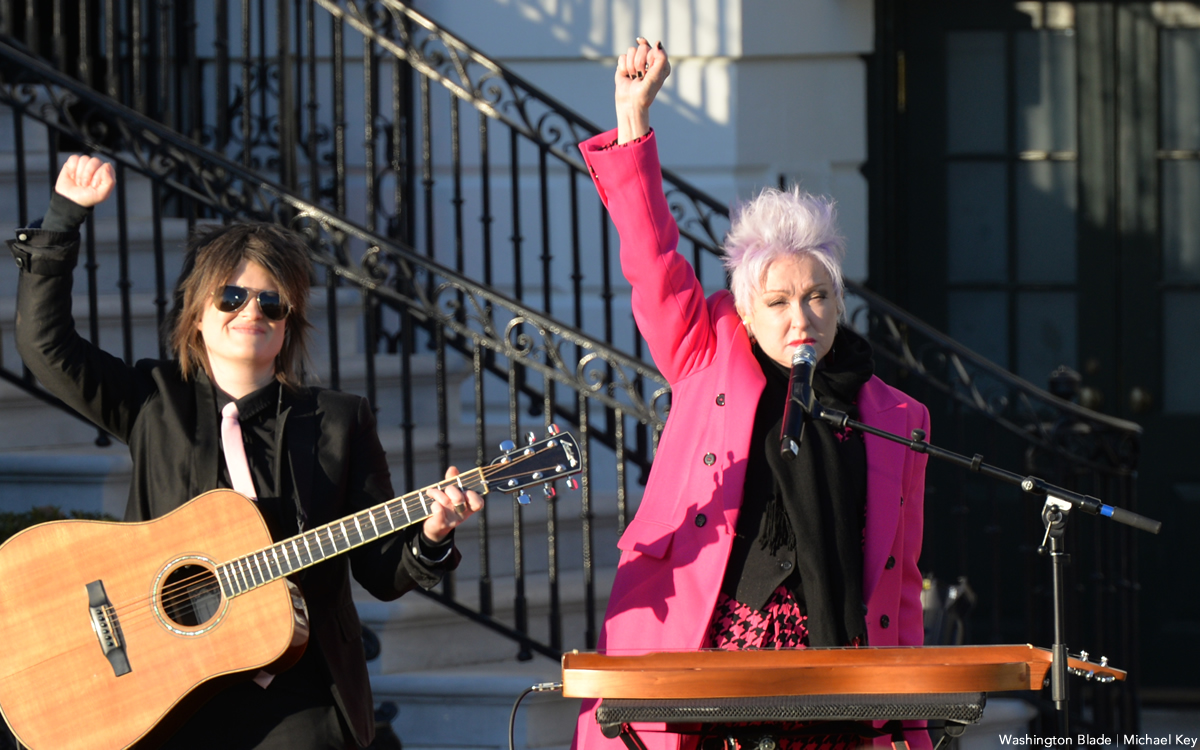
Superstar Cyndi Lauper will bring the final leg of her farewell tour “Girls Just Wanna Have Fun” to Bristow, Va., on Thursday, July 24 at Jiffy Lube Live.
Lauper’s international Farewell Tour – her first major headlining run in a decade – kicked off in North America last October, and included her first time ever headlining (and selling out) Madison Square Garden. Lauper’s performances have earned raves from the New York Times, Rolling Stone, Billboard, and many more, and surprise guests have included Chaka Khan, Sam Smith, and Hayley Williams. The tour just visited the U.K. and Europe, and will head to Australia and Japan in April.
Tickets are available on Live Nation’s website.


















